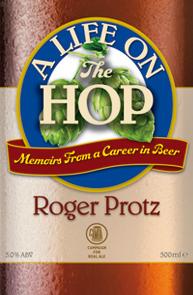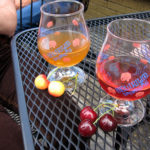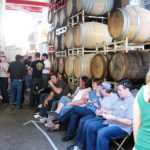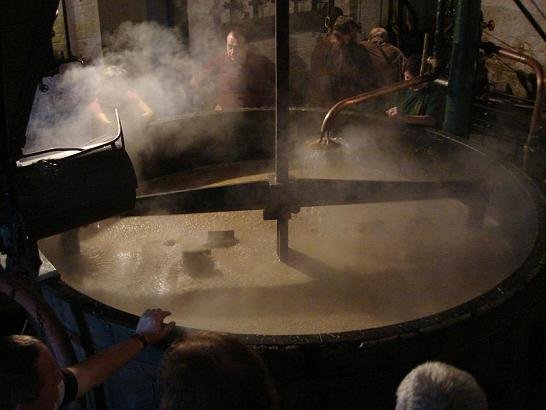 Pete’s post this morning had me wondering a bit about what exactly the hell is going on in the UK with beer bloggers. Consider this:
Pete’s post this morning had me wondering a bit about what exactly the hell is going on in the UK with beer bloggers. Consider this:
I’m not the first beer writer to brew at Otley – not by any means. I would have been higher up the list if I’d got my shit together when they first invited me to brew, but since then Melissa Cole, Adrian Tierney-Jones and Roger Protz have all been asked to come down and get their hands dirty – Glyn from the Rake, AKA @RabidBarFly, was here before any of us – his Motley Brew has become a regular addition to the range… I’ve been asked to brew before – several times. But on most of those occasions ‘brewing’ meant I dug out the mash tun and basically got in the way. The notable exception would, of course, be Avery Brown Dredge – and my write up of that experience is long overdue – but Zak and Mark had much more to do with both the recipe design and the labour than I did. Like our ABD experience, Otley ask writers to get stuck in.
We’ve had a long and thankfully dormant discussion about propriety and beer writing and I am not wanting to go there again… at least not directly. But it is interesting to observe an apparent difference in the marketplace of ideas. UK beer bloggers seem to have become writers and organizers and collaborators and consultants while North American bloggers were originally beer writers or have been and will always be mainly consumers. The CAMRA and festival effect is undeniable, giving venue at all levels for the aspiring to go from digital to ink on paper as well as a great opportunity to be a useful guide for hire. Nothing wrong with these things as they are all about education… except they are also starting to seem to be about the educator as much as the lesson.
Beer thinking has often suffered from a few controlling voices which, as Ron’s work has pretty much proven conclusively, had it pretty much all wrong. While having a fun day is great and making a buck from skill even greater, is there an issue with associating name with someone else’s product under the guise of collaboration, an issue with getting too close to the brewer? Consider if some brewery years ago had obtained the rights to make Jackson’s Stout or Protz’s Pale Ale. Would the marketplace be different from that stamp of authority? Would beer writing and thinking not be lessened? Don’t we all have enough examples on our book shelves displaying rushed claims to expertise?
No, beer has an egalitarian quality and, I would argue, inherently encourages it. And by inherently I mean inherently. Say what you like about Protz – and God knows I do – the focus on the commonality of the wonder of good beer may be his real gift to us all. Beer is in itself egalitarian because it is a leveler, not only because of sociability but due to its incredible complexities. Brewer’s yeast sets a very high standard for those who seek to understand its ways, a standard that exposes those who claim achievement as opposed to become its student. For me, Oregon appears to be my preferred model. So much good brewing and so much good thinking for so many years that no one really could really suggest they stand above the others without be cut down or, more likely, laughed back into their chair to share in the next round. This may create a conundrum for those with interest and opportunity in telling the story. I don’t deny it. There’re pitfalls a plenty for the unwary – and Pete and those he mentions are among the best. Yet those trip ups are out there. It is in the nature of beer. Look, I’m just telling you what it’s telling me. It’s in the nature of beer.























 I was going to call this post “John Graham – He Cleans Up Pretty” but that might have been the right one had I not been the last to know just about everything going on at
I was going to call this post “John Graham – He Cleans Up Pretty” but that might have been the right one had I not been the last to know just about everything going on at